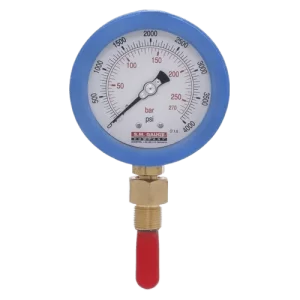Diaphragm Valve
Diaphragm valves feature a body with two or more ports, a flexible diaphragm, and a raised surface (often called a weir or seat) that the diaphragm presses against to close the flow path. Depending on the application, the valve body can be made from materials such as metal, plastic, or even wood.
Description
Diaphragm valves are dependable flow control solutions used to manage fluid movement across different industries. Known for their accurate shut-off capabilities and secure sealing, they effectively prevent leaks. Typical applications include pharmaceutical manufacturing, food and beverage processing, chemical industries, and water treatment systems.
Key Features
- Precise Flow Control: Diaphragm valves offer accurate and consistent flow regulation, perfect for systems requiring precision.
- Leak Prevention: The diaphragm seals the valve body tightly, preventing leaks under high-pressure conditions.
- Corrosion Resistance: Made from materials such as stainless steel, plastic, or elastomers, these valves resist corrosion and offer long-lasting performance.
- Hygienic Design: Diaphragm valves meet strict hygiene and sterilization standards, ideal for the food and pharmaceutical industries.
- Low Maintenance: With a simple design, diaphragm valves need minimal maintenance and have a long service life.
Applications
- Pharmaceutical Industry: Used in drug production and transport, where hygiene and flow control are critical.
- Food and Beverage: Ensures sanitary conditions in liquid handling systems.
- Chemical Processing: Regulates chemical flow while preventing contamination and corrosion.
- Water Treatment: Controls water flow and prevents leaks in filtration and treatment processes.
Advantages
- Versatility: Diaphragm valves handle a range of fluids, from clean water to harsh chemicals.
- Reliable Sealing: The diaphragm ensures a tight seal, preventing leaks even with fluctuating pressure.
- Cost-Effective: These valves offer a long lifespan with low maintenance needs, providing a cost-effective solution.
- Easy Installation: The simple design makes installation and replacement quick and easy.
Conclusion
Diaphragm valves are essential for applications that demand dependable flow regulation and effective leak protection. The versatility, durability, and low maintenance make these valves ideal for industries where precision and hygiene are very essential. From pharmaceutical production to chemical processing, these valves ensure consistent, efficient, safe, and reliable operation. They provide a long-term solution that enhances system performance and reduces operational costs.





